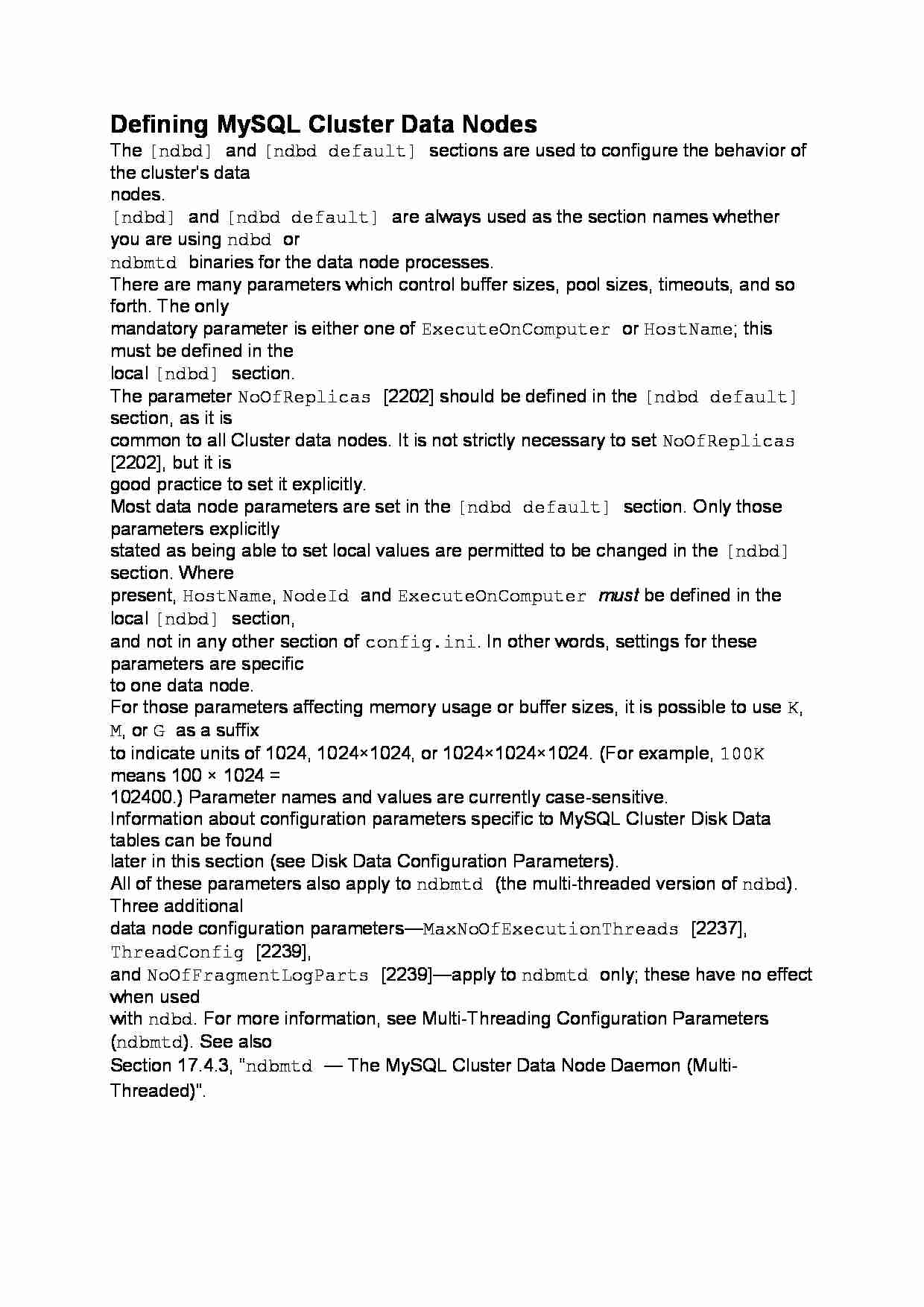
Defining MySQL Cluster Data Nodes
The [ndbd] and [ndbd default] sections are used to configure the behavior of the cluster's data
nodes.
[ndbd] and [ndbd default] are always used as the section names whether you are using ndbd or
ndbmtd binaries for the data node processes.
There are many parameters which control buffer sizes, pool sizes, timeouts, and so forth. The only
mandatory parameter is either one of ExecuteOnComputer or HostName; this must be defined in the
local [ndbd] section.
The parameter NoOfReplicas [2202] should be defined in the [ndbd default] section, as it is
common to all Cluster data nodes. It is not strictly necessary to set NoOfReplicas [2202], but it is
good practice to set it explicitly.
Most data node parameters are set in the [ndbd default] section. Only those parameters explicitly
stated as being able to set local values are permitted to be changed in the [ndbd] section. Where
present, HostName, NodeId and ExecuteOnComputer must be defined in the local [ndbd] section,
and not in any other section of config.ini. In other words, settings for these parameters are specific
to one data node.
For those parameters affecting memory usage or buffer sizes, it is possible to use K, M, or G as a suffix
to indicate units of 1024, 1024×1024, or 1024×1024×1024. (For example, 100K means 100 × 1024 =
102400.) Parameter names and values are currently case-sensitive.
Information about configuration parameters specific to MySQL Cluster Disk Data tables can be found
later in this section (see Disk Data Configuration Parameters).
All of these parameters also apply to ndbmtd (the multi-threaded version of ndbd). Three additional
data node configuration parameters—MaxNoOfExecutionThreads [2237], ThreadConfig [2239],
and NoOfFragmentLogParts [2239]—apply to ndbmtd only; these have no effect when used
with ndbd. For more information, see Multi-Threading Configuration Parameters (ndbmtd). See also
Section 17.4.3, “ndbmtd — The MySQL Cluster Data Node Daemon (Multi-Threaded)”.
... zobacz całą notatkę



Komentarze użytkowników (0)